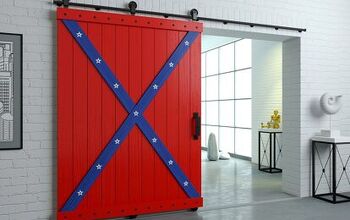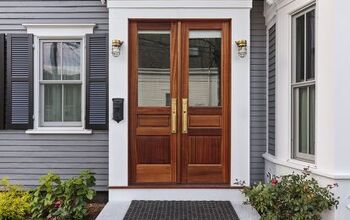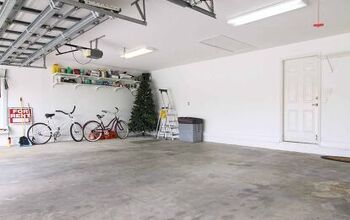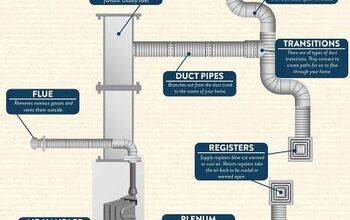Small Town Living Vs. Big City: The Real Pros and Cons

Life in a big city can be overwhelming. That’s why, over the years, more and more people begin to consider moving to a smaller town.
But is that really what you want? In general, small town life is slower, often more affordable, but with less opportunities and less convenient. Meanwhile, living in a large city is fun, exciting, but definitely more expensive and challenging.
Do You Need to Hire Movers?
Get free, zero-commitment quotes from moving companies near you.

What Do You Look For In Your Life?
If you are thinking about moving and drastically changing up your lifestyle, you need to understand what you are looking for in your life first.
What matters most to you? Would it be okay if you have to drive 30min to the nearest mall? Or is it the fast pace of city life draining your energy? Do you want the tranquility of the countryside, or do you prefer the vibrance of neon lights and busy traffic?
Ask yourself this: what will make you happy?
“Safe Small Town?”
When it comes to living conditions, security should always be your priority. Most people automatically relate larger cities to higher crimes and smaller towns to safer environments. However, that is not always true.
Safety in a Small Town
According to a study published by the University of Pennsylvania, the rate of injury-related deaths in a small town can be 20% higher than that in a larger city.
While a small town naturally has a smaller population, other reasons could lead to a more dangerous surroundings, such as less efficient transportation system, less forces available, or less access to immediate care.
However, having a smaller community where everyone knows everyone else is definitely helpful when it comes to neighborhood watching and reducing crimes.
Safety in a Big City
On the other hand, big cities remind us of bright street lights and frequent patrols. Just like crimes typically don’t happen in the middle of the shopping district, being in a busy metropolis has been proven to be much safer than people think.
Every city has its own “safer zones.” Long-time residents in any metropolitan area will know where to avoid at night and what neighborhoods they should steer away from.
Cost Of Living
Another big difference between small town and big city life is the cost of living, as well as growth opportunities. We all want to save on spending, but there needs to be a good balance. If extremely low spending leads to a life whose sole purpose is to save but not to live, then not many people would go down that route.
Lower Cost-of-Living in a Small Town? Not necessarily.
In general, the biggest pro of living in a small town is definitely affordability. However, it’s not always true that things are “cheaper” in a small town. In some cases, it may actually be quite the opposite.
According to a survey conducted by NDSU, an exact same bag of grocery costs 21% less in national chain stores (Walmart, Aldi, etc) compared to local, neighborhood-owned stores that are more frequently-seen in small towns.
On the other hand, fuel prices have been proven to be much lower in a small town. So it eventually all comes down to having a good balance on spending.
Cost of Living in Larger Cities
Regardless, most will agree that living in a larger city is financially more stressful. Simply take a look at the data from our best-known cities:
Cost of Living in Major Metropolitan Areas
| City | Living cost to average | Housing cost to average | Median Income |
| Atlanta, GA | 0.5% higher | 1.4% higher | $59,183 |
| Austin, TX | 1.5% lower | 1.8% higher | $66,093 |
| Boston, MA | 47.4% higher | 111.2% higher | $77,809 |
| Chicago, IL | 23.8% higher | 58.8% higher | $63,327 |
| Dallas, TX | 4.3% higher | 6.8% higher | $61,330 |
| Denver, CO | 11.9% higher | 36.3% higher | $68,173 |
| Houston, TX | 2.5% lower | 2.4% higher | $60,902 |
| Las Vegas, NV | 3.3% higher | 10.8% higher | $52,629 |
| Manhattan, NY | 142.4% higher | 414.1% higher | $69,211 |
(Data source: 24 Wall Street)
However, this number isn’t representative for all metropolitans. Some developing cities have a much lower cost of living while still providing the perks a big city lifestyle provides.
Entertainment & Activities
One of the biggest pros of living in a big city is definitely the wide variety of entertainments and activities you can choose from. Typically, life in a small town is far more family-oriented. When it comes to activities, most will think of church gatherings, small-scale town fairs, and local amenities.
Meanwhile, large cities usually give you the access to a wider variety of fine dining, live music, nightlife options as well as state fairs and other seasonal events. So the better question is: do you prefer to travel for good events, or would you rather have all the fun and thrill right at your doorstep?
Career & Ambition – The Job Market
Whether it is yourself, or you are thinking about your kids, it is important to keep future in mind before moving.
Pros & Cons on Job Opportunities
Big cities tend to have more robust, high-end and advanced jobs, especially in the IT, public relations or more business-centric industries. On the other hand, smaller towns are a better place for smaller businesses, skill trades and other less competitive industries.
In general, the local labor market is less competitive in a small town, but if you are aiming for climbing a corporate ladder or are simply ambitious, a metropolis will be the right stage for you.
Remote Workforce
Nowadays, the pros & cons in job markets caused by the differences between small towns and big cities are less extreme. This is mostly due to the uprising of work-from-home and other remote work possibilities.
Most countryside towns have good reception and will allow anyone to work remotely anytime and anywhere they want. However, it is important to take into consideration if the town has the necessary infrastructures needed to complete your work.
Infrastructure: Do You Have What You Need?
Which, naturally, leads us to one of the biggest cons of small town life: a general lack of either the critical infrastructure and essential facilities themselves, or the access to those things.
Going to a Doctor in a Small Town
Insufficient access to healthcare has always been an issue in less developed areas, especially in the countries, and this is one of the biggest cons of living in a small town.
What if you have a stroke and the only doctor is out hunting on the lake? (True story in 2010). Or what if you cut yourself really bad, and the closest emergency care is 20-30 minutes away?
Transportation in a Small Town
On top of that, think about the country roads and lack of proper lighting. Think about the possibilities of not getting signal and thus losing GPS navigation…
When it comes to the inconveniences created by small town living, things become serious. For one, it is nearly mandatory that you have a car and are comfortable for long periods of driving on a regular basis to live in a small town.
Again, when the closest grocery store is 20 minutes away, what impact would that create on your life, especially if you are used to the big city ways?
The Infrastructure Network in a Big City
Apparently, taking care of yourself is much more different in the big cities.
Most large cities have multiple emergency care rooms. The roads are well-developed and in the worst case scenario, the ambulance will be able to pick you up in time. For less urgent issues, you can probably go around the block to a pharmacy and handle things yourself.
In addition, most metropolitan areas have public transportation. A lot of places are within biking distance. Even if you don’t have a car, you can get by just fine in New York or Houston. But can you say the same about Warrensburg, MO?
Pros vs. Cons, Big vs. Small
To sum everything up, we put together a comparison chart for big city and small town life so you can make your own list of pros and cons.
| Big City | Small Town | |
| Cost of Living | Often much higher especially for housing, but have better pricing on essentials if you go to the national chain stores | Much more affordable with potentially more expensive groceries and other essentials |
| Entertainment | Definitely more fun, with a ton of different activities and things you can do | More community focused with a stronger sense of close relationship. |
| Labor Market and Economy | More tolerant, diverse and has far more opportunities especially for those interested in more complicated & advanced industries | Stable, calm, slow-paced. If you are okay with working a basic job for the next 20 years, you will be just fine. |
| Transportation | Multiple ways of transportation and often has a public transit system | A car is a necessity to survive in a small town. |
| Infrastructure | Easy access to essential facilities | Long drives are very common and emergency access to healthcare facilities are lacking. |
Do You Need to Hire Movers?
Get free, zero-commitment quotes from moving companies near you.

Summing It Up
At the end of the day, you must evaluate what matters to you the most. Once you understand your own needs and desires, you will be able to make a decision on where to live and how to go on with your life.
Related Guides

We are a team of passionate homeowners, home improvement pros, and DIY enthusiasts who enjoy sharing home improvement, housekeeping, decorating, and more with other homeowners! Whether you're looking for a step-by-step guide on fixing an appliance or the cost of installing a fence, we've here to help.
More by Upgraded Home Team



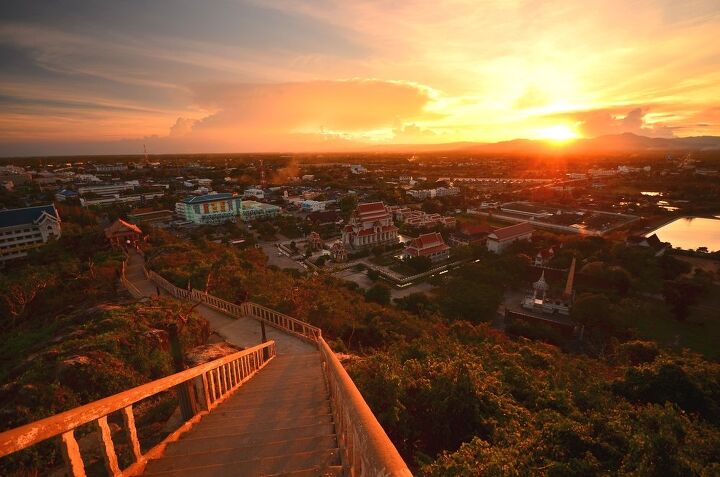






![10 Best Zero Turn Mowers – [2022 Reviews & Ultimate Buyer's Guide]](https://cdn-fastly.upgradedhome.com/media/2023/07/31/9070522/10-best-zero-turn-mowers-2022-reviews-ultimate-buyer-s-guide.jpg?size=350x220)

![10 Best Scroll Saws for 2022 [Ultimate Reviews & Buyer's Guide]](https://cdn-fastly.upgradedhome.com/media/2023/07/31/9070684/10-best-scroll-saws-for-2022-ultimate-reviews-buyer-s-guide.jpg?size=350x220)
